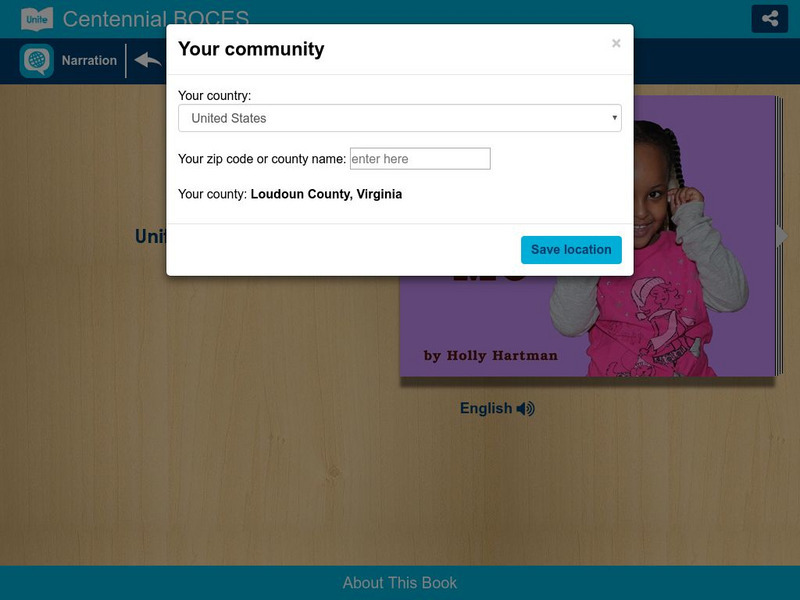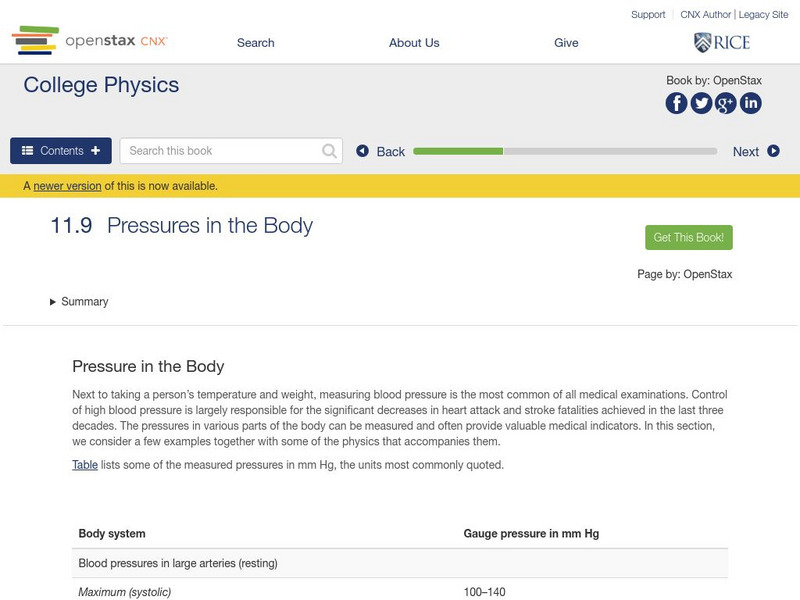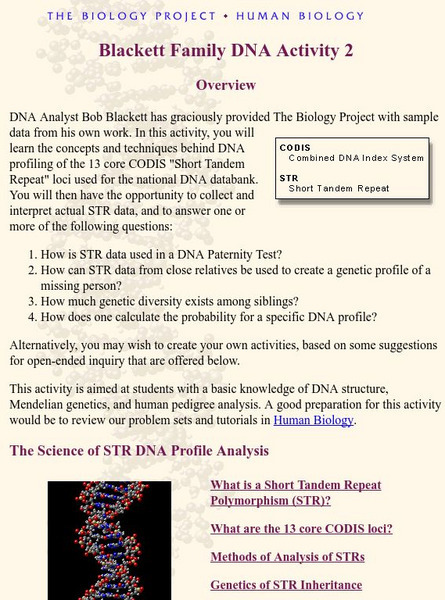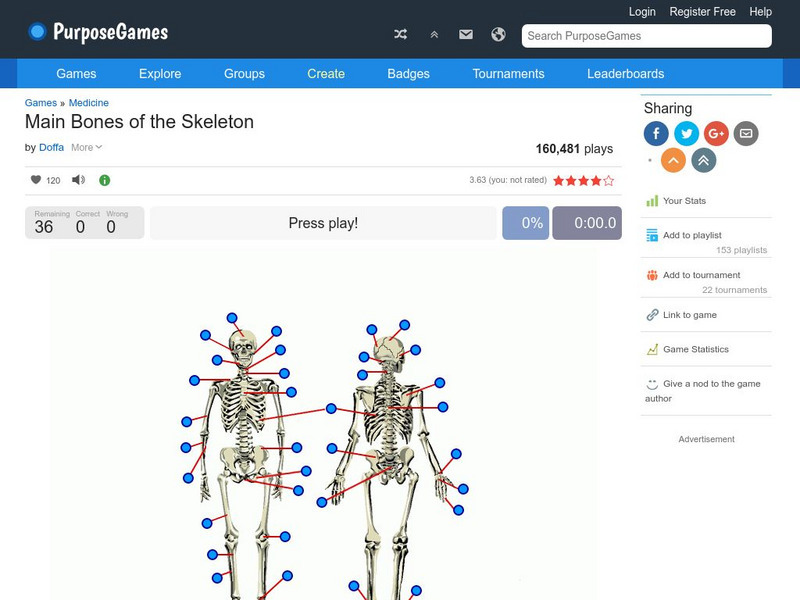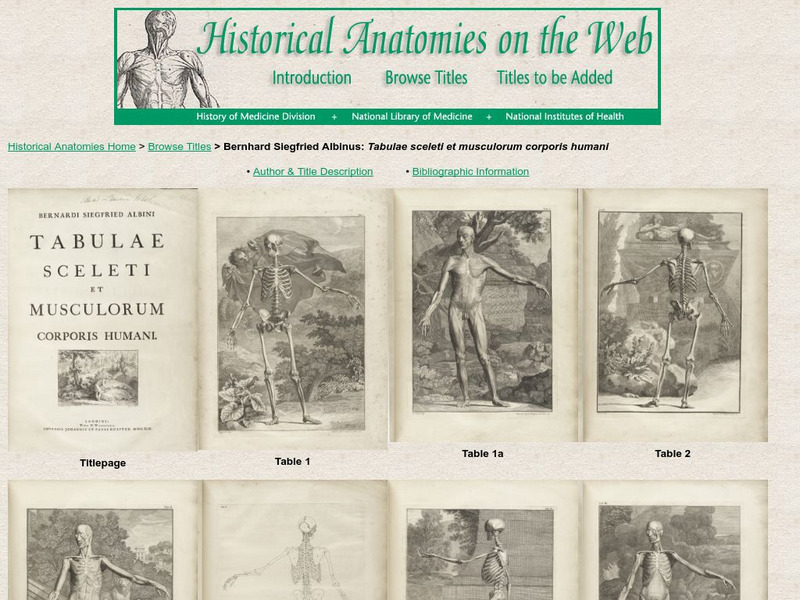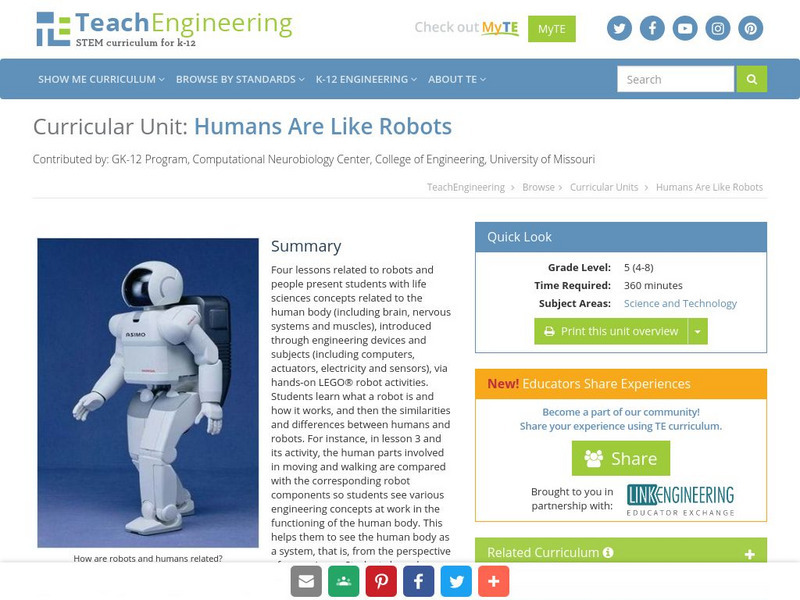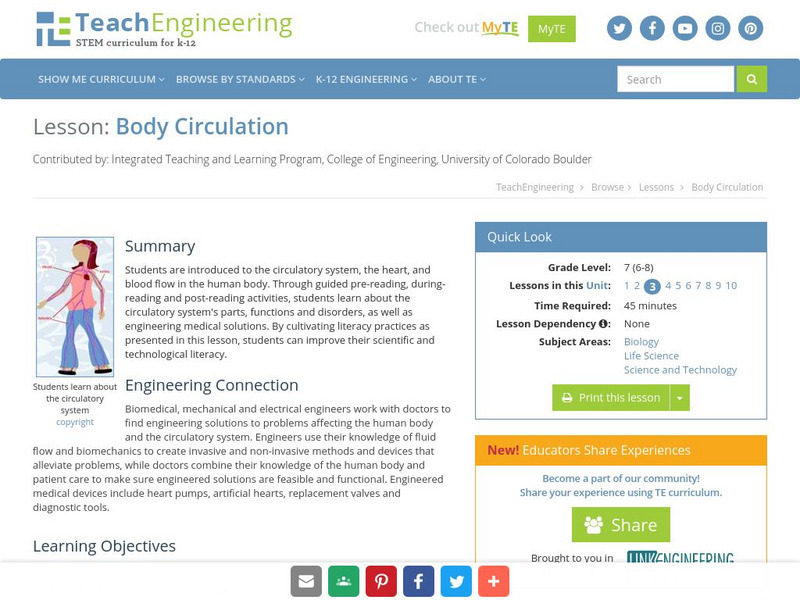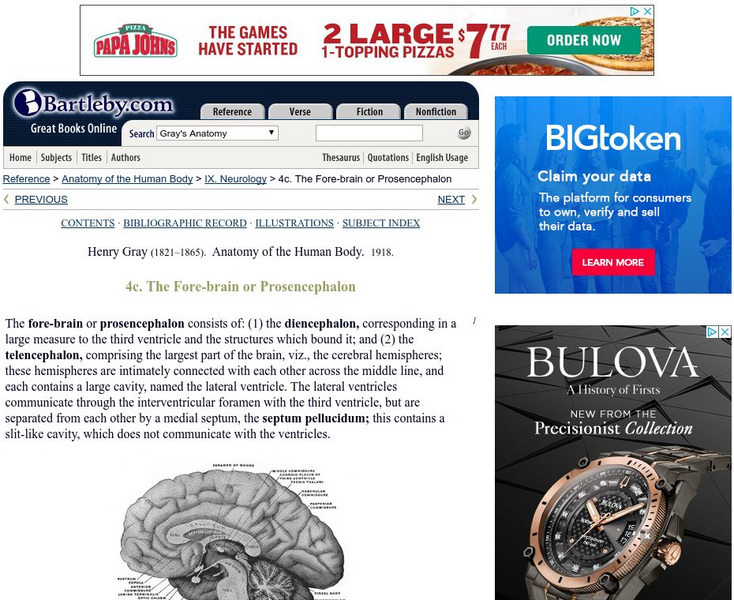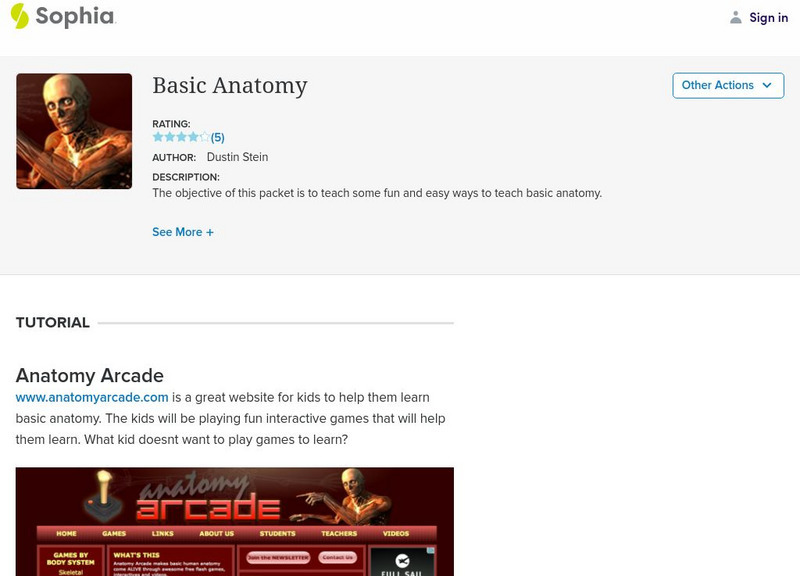Unite for Literacy
Unite for Literacy: Cboces: Migrant Education Program: Parts of Me
A beginning reader introducing the names of body parts. Includes audio narration in 22 additional languages with text in English.
University of Arizona
The Biology Project: Human Biology: Sexually Transmitted Diseases Problem Set
This problem set is designed to increase students' knowledge of sexually transmitted diseases (STDs). It identifies the most common contemporary sexually transmitted diseases and describes their symptoms, modes of transmission, and...
OpenStax
Open Stax: Pressures in the Body
From a chapter on Fluid Statics in a Physics textbook. This section of the chapter covers the different types of fluid pressures in the human body and how they are measured. Includes problems and exercises.
Other
Imaios Sas: E Anatomy: Atlas of Human Anatomy
A collection of pictures, videos, medical imaging, and illustrations of human anatomy. A membership is required to view some of the images, while other images can be viewed without one.
CK-12 Foundation
Ck 12: Biology: Nervous System Study Guide
Use this review guide of the human body nervous system to understand its importance to the human body.
Other
Biology Online: Human Physiology: Sensory Systems
Study the many parts of the human body that make up the sensory systems. Be able to identify receptors, primary sensory coding, neural pathways and more with this biology resource.
University of Arizona
The Biology Project: Human Biology: Blackett Family Dna Activity 2
In this activity, students learn the concepts and techniques behind DNA profiling of the national DNA databank. Students will then have the opportunity to collect and interpret actual STR data, and to answer one or more questions.
Other
Get Body Smart: General Organization of the Nervous System
Brought to you by Get Body Smart, students can learn about the human nervous system through this easy-to-access tutorial. Sections include Major Organs and Divisions, Sensory and Motor Divisions, Somatic Divison, Sample Somatic Divison...
Open Curriculum
Open Curriculum: Immune System: Nonspecific Defenses
Students will be able to describe mechanical, chemical, and biological barriers that keep most pathogens out of the human body.
CK-12 Foundation
Ck 12: Biology: Muscular System Study Guide
Review the structure and function of the human body's muscular system.
CK-12 Foundation
Ck 12: Life Science: 11.43 Peripheral Nervous System
Understand the structure and function of the peripheral nervous system in the human body.
PurposeGames
Purpose Games: Main Bones of the Skeleton
Thirty six question quiz tests the users knowledge of the main bones of the body.
National Institutes of Health
National Library of Medicine: Historical Anatomies of the Web: Albinus, Bernhard
Images from the 18th century anatomy text, "Tabulae sceleti et musculorum corporis humani" by Bernhard Siegfried Albinus. There are drawings of individual bones, skeletons and musculature. The text on the images is in Latin. Title and...
TeachEngineering
Teach Engineering: Humans Are Like Robots
Four lessons related to robots and people present students with life sciences concepts related to the human body (including brain, nervous systems and muscles), introduced through engineering devices and subjects (including computers,...
TeachEngineering
Teach Engineering: Our Bodies Have Computers and Sensors
Students learn about the human body's system components, specifically its sensory systems, nervous system and brain, while comparing them to robot system components, such as sensors and computers. The unit's life sciences-to-engineering...
TeachEngineering
Teach Engineering: Human and Robot Sensors
Students are provided with a rigorous background in human "sensors" (including information on the main five senses, sensor anatomies, and nervous system process) and their engineering equivalents, setting the stage for three associated...
PBS
Nova Online: Map of the Human Heart
This PBS site has a concise explanation of how the heart works. There is also a moving diagram of a working heart.
Smithsonian Institution
Tween Tribune: If We Don't Need an Appendix, Why Is It There?
Article presents a theory regarding the role of the appendix in the human body.
TeachEngineering
Teach Engineering: Body Circulation
Students are introduced to the circulatory system, the heart, and blood flow in the human body. Through guided pre-reading, during-reading and post-reading activities, students learn about the circulatory system's parts, functions and...
Howard Hughes Medical Institute
Hhmi: Biointeractive: Obesity: The Fate of Fat
See how dietary fat from food we eat travels through the digestive system, and gets packaged and stored in the human body. [2:07]
Bartleby
Bartleby.com: The Fore Brain or Prosencephalon
This site from Bartleby.com contains an intense, in-depth article from Henry Gray's Anatomy of the Human Body on the fore-brain or prosencephalon. The article discusses the thalamus throughout and touches on its functions as a whole.
Other
Bones and Skeletal System
This thorough site delves into the structure of the bone, the main bones in the human skeleton (definition and pictures), and a comparison of the male and female pelvis.
National Cancer Institute at the National Institutes of Health
Seer Training Modules: Introduction to the Reproductive System
Self-guided learning activity where students learn about the structure and function of the male and female reproductive systems. There is a short quiz at the end of the lesson to check for understanding.
Sophia Learning
Sophia: Anatomy: Basic Anatomy Tutorial
Created to teach students of the 21st century, SOPHIA is bringing anatomy straight to your fingertips. Some great tips for teaching the basic parts of the body.
